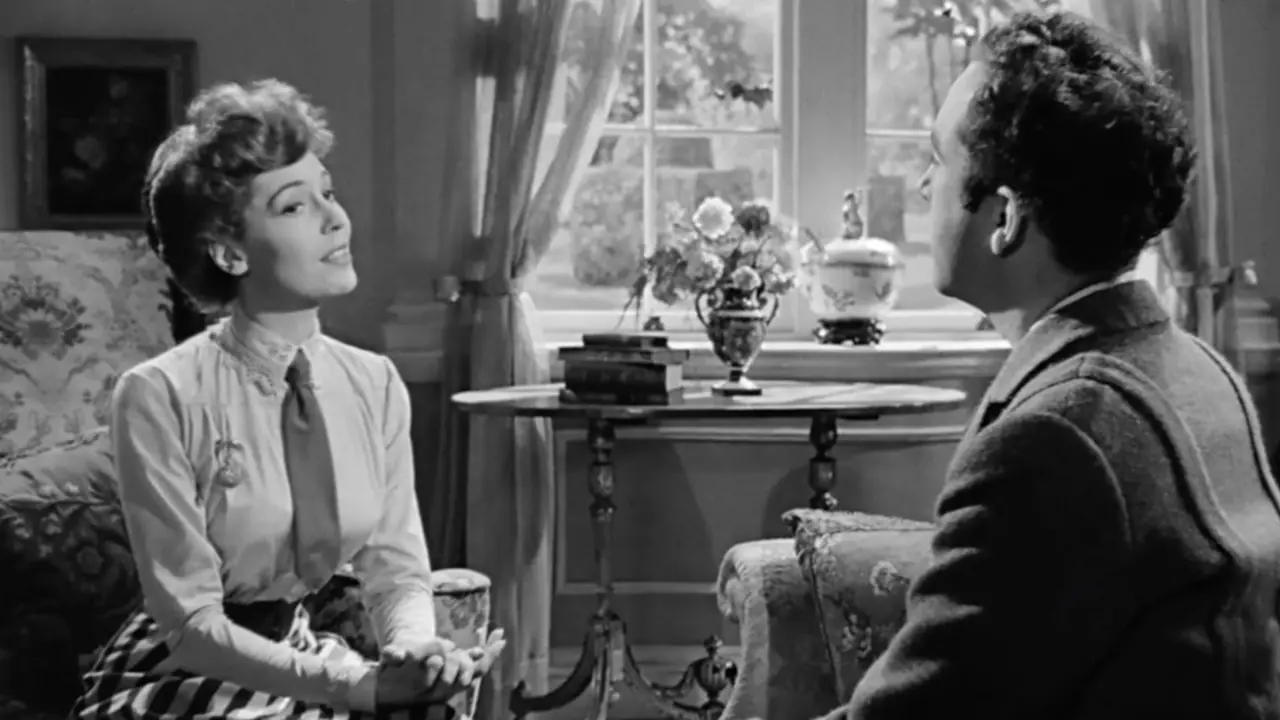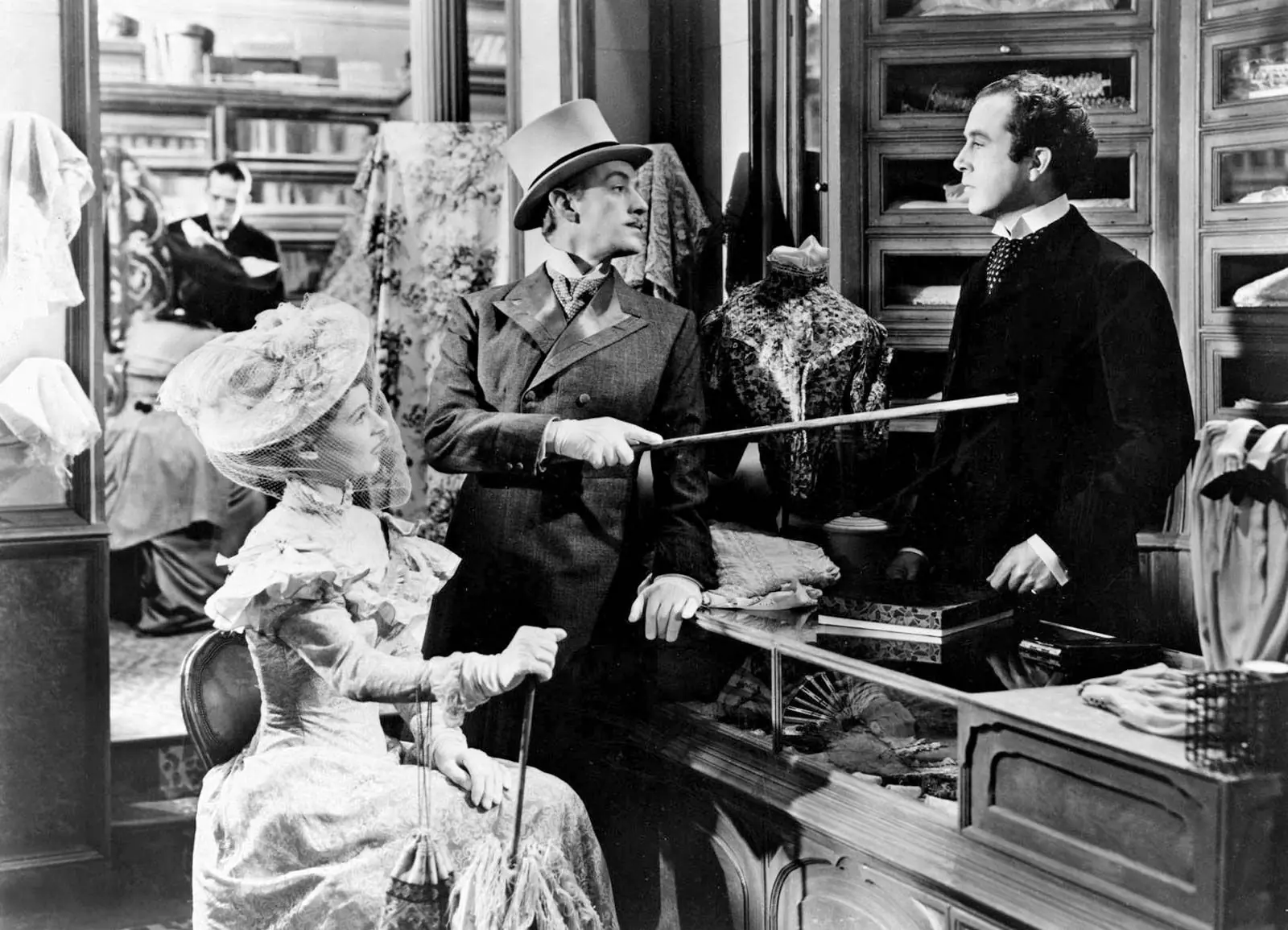KIND HEARTS AND CORONETS Dissected: Simply a Masterpiece
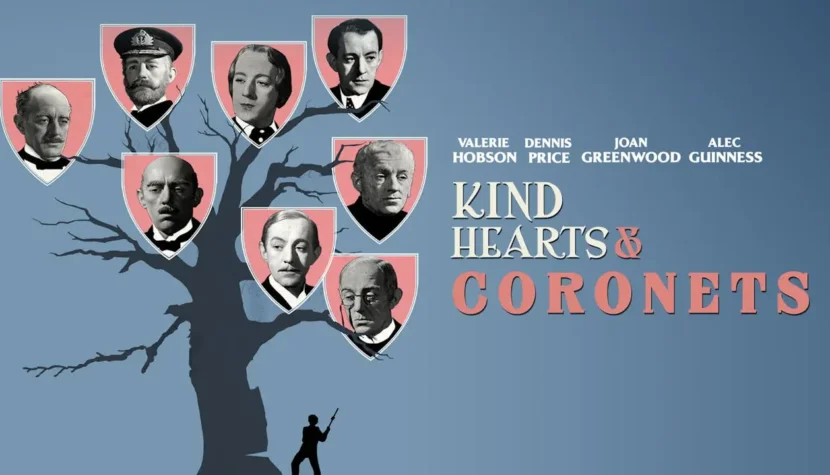
Kind hearts are more than coronets,
and simple faith than Norman blood.
In his poem, Tennyson warns the titular Clara not to place excessive faith in the power of wealth and lineage, no matter how secure she might feel in the world because of them. A similar warning would have been useful for the main character of the film, Louis Mazzini. However, why would he listen to good advice when he is driven equally by a sense of personal wrong and a desire for revenge? Kind Hearts and Coronets it is.
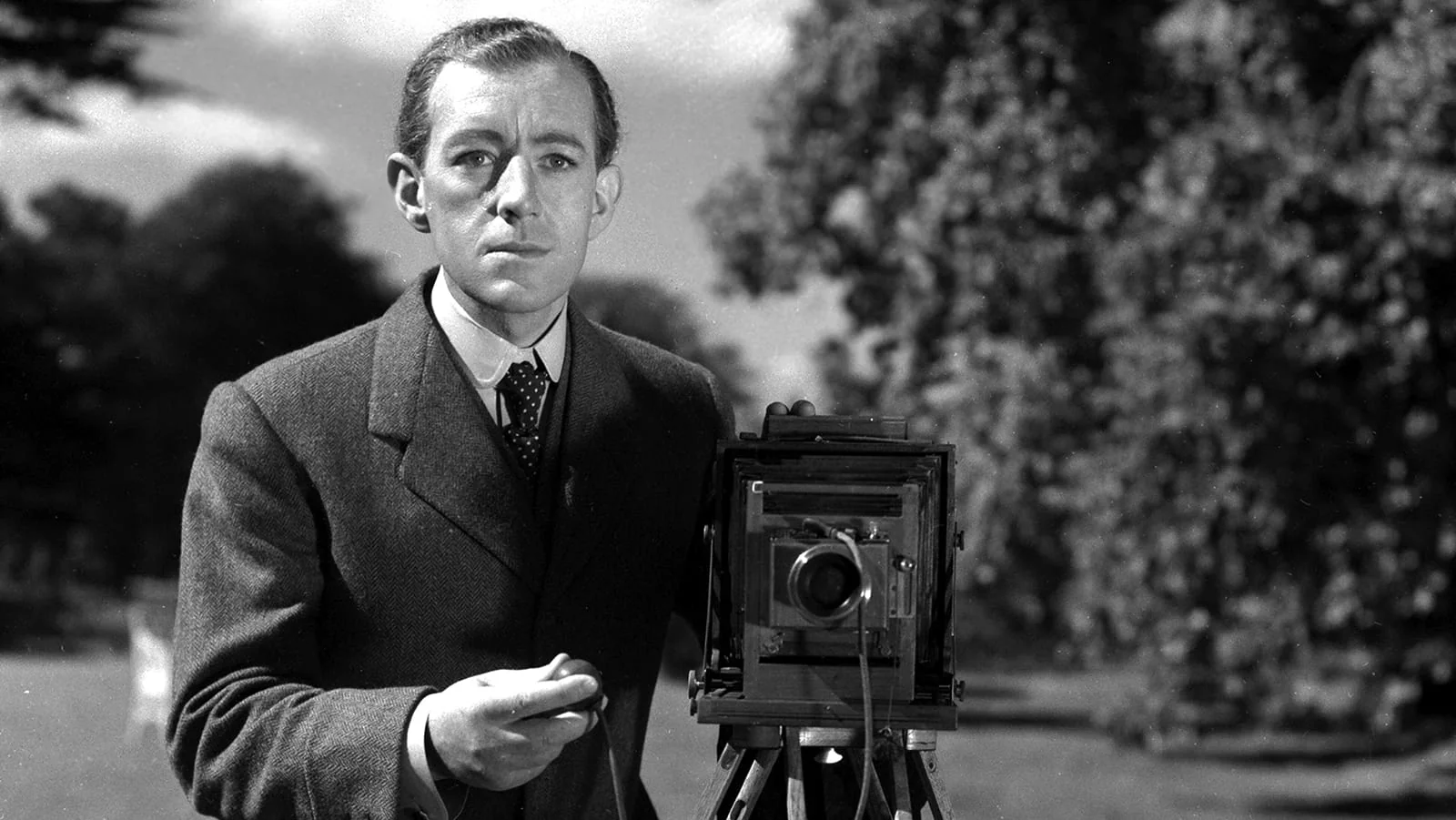
It so happened that Louis’s mother, belonging to the noble Ascoyne D’Ascoyne family, gave her heart to an Italian tenor with no money, deceived by the beauty of his voice and the charm of his flamboyant moustache. This scandalous misalliance naturally outraged the family, which excommunicated the wayward daughter, erasing the Mazzini name from the family Bible. And everything would have been fine, because although the household was poor, it was incredibly happy – had it not been for the fact that after five years, a child was born. One glance at the cradle, and Mazzini senior dropped dead.
Despite repeated attempts, the family refuses to offer the widow any help, so the unfortunate woman takes up various jobs, only to eventually end her life under the wheels of a tram. For her loving son Louis, the ultimate insult is the refusal to bury his mother in the D’Ascoyne family crypt. Thus, a plan is born to patiently remove one by one the potential heirs to the dukedom and claim what Louis rightfully deserves by birth.
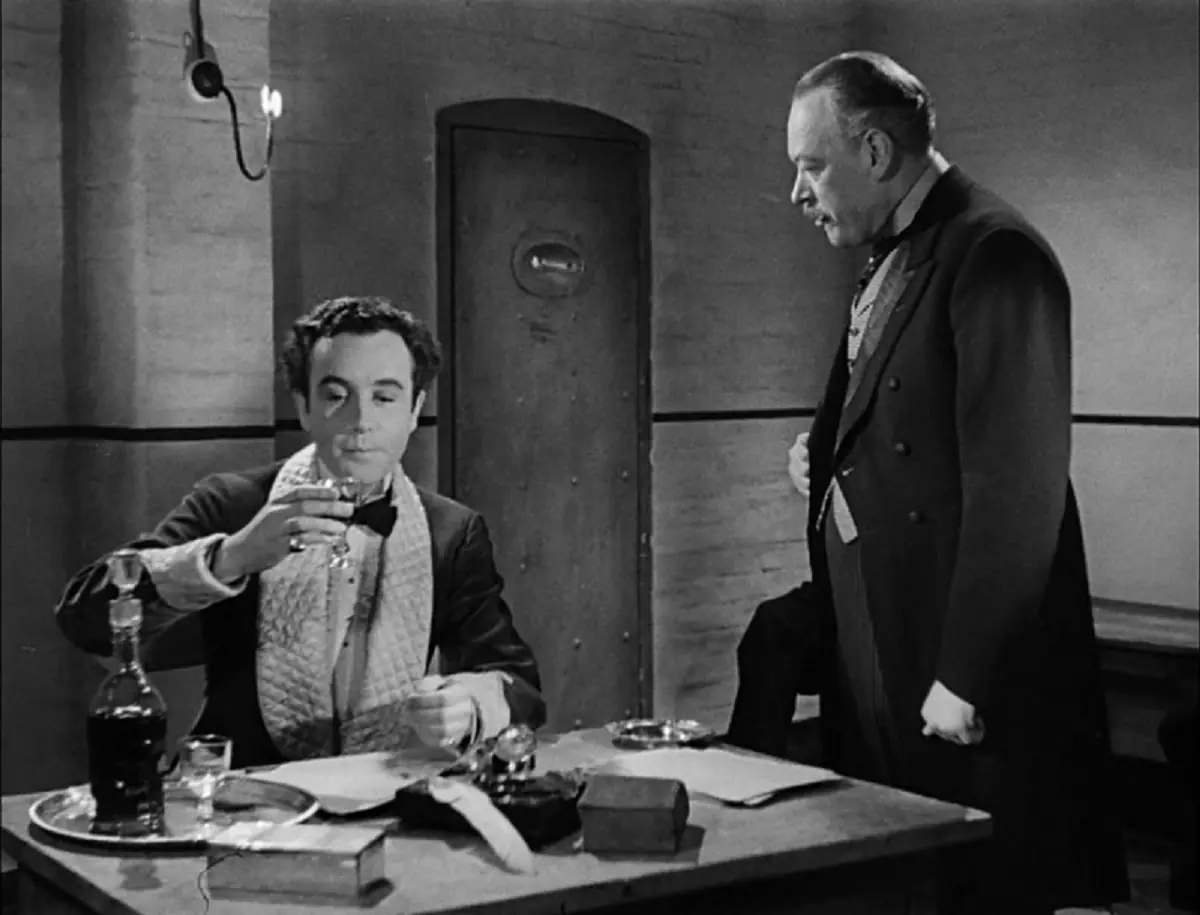
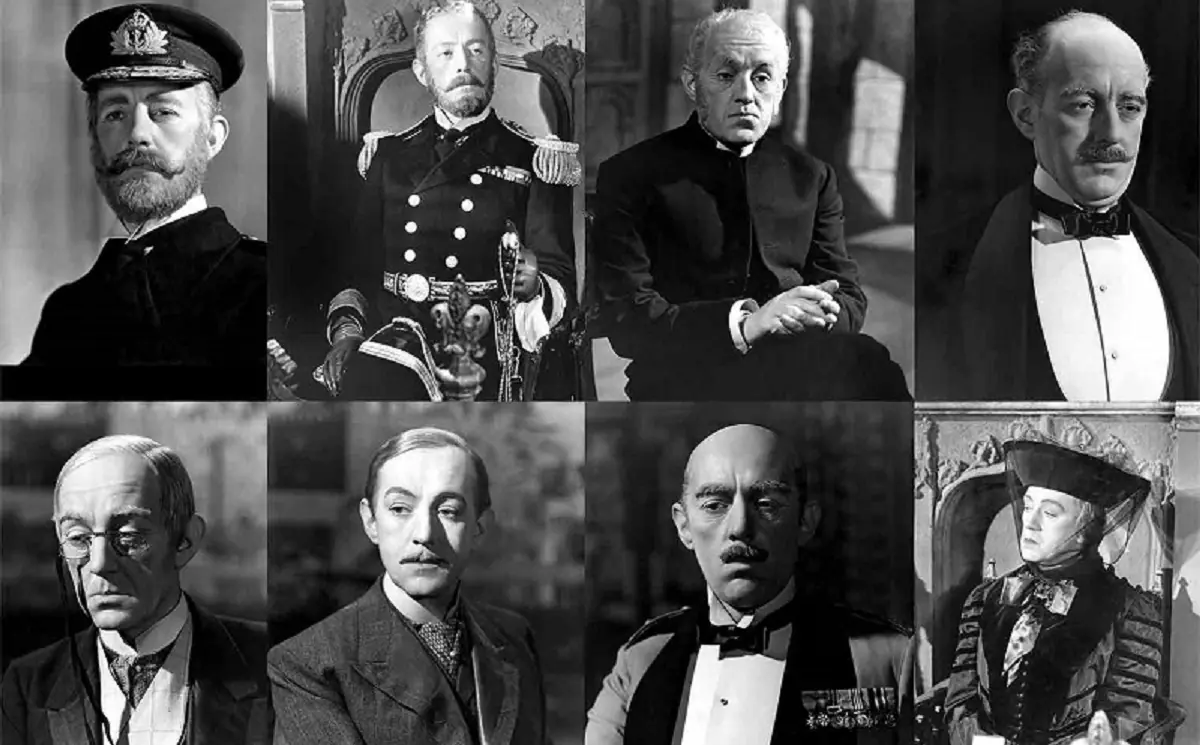
If Louis’s actions do not prove this point sufficiently, then the queue of his competitors, whom he systematically eliminates, certainly confirms it. And this brings us to the marvelous aspect of Kind Hearts and Coronets – the role of Alec Guinness. Had Guinness decided to end his acting career after this film (which, fortunately, he did not), he would still have secured a place in the annals of cinema with this one performance. He plays, in turn, all the victims from the Ascoyne D’Ascoyne family. Without the aid of special effects, without heavy makeup, but simply through his voice, facial expressions, and mannerisms, he changes his persona as easily as changing gloves. We see him as a sensible and decent banker (who happily dies of natural causes), an impassioned general, a ridiculously arrogant ladies’ man, a slightly slow-witted clergyman, and even the energetic suffragette Lady Agatha.
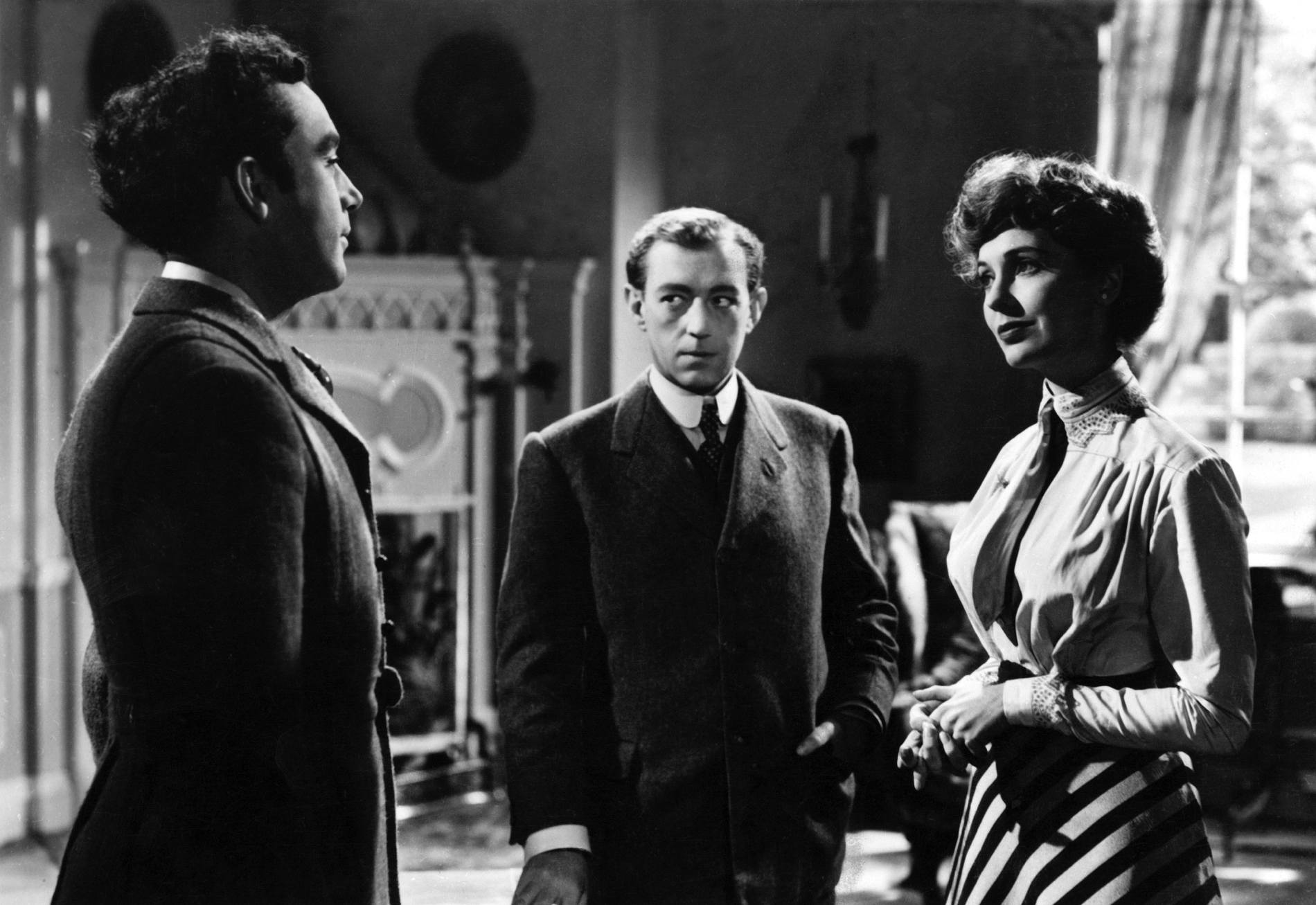
In each of these incarnations, he is different, but what is especially impressive is that in none of them does he overplay to the point of moving beyond the secondary role that he occupies. Dennis Price is always meant to take center stage, and Guinness, without losing any of his acting brilliance, calmly steps aside. The balance remains unwavering. If he wanted, he could steal every scene. The proof of his mastery is that he does not attempt to do so. The director, moreover, skillfully frames the shots involving Guinness’s various incarnations, avoiding unnecessary close-ups and keeping Dennis Price closer to the camera. This makes it easier to believe that we are watching performances from several different people. Simply a masterpiece, there’s no other way to describe it.
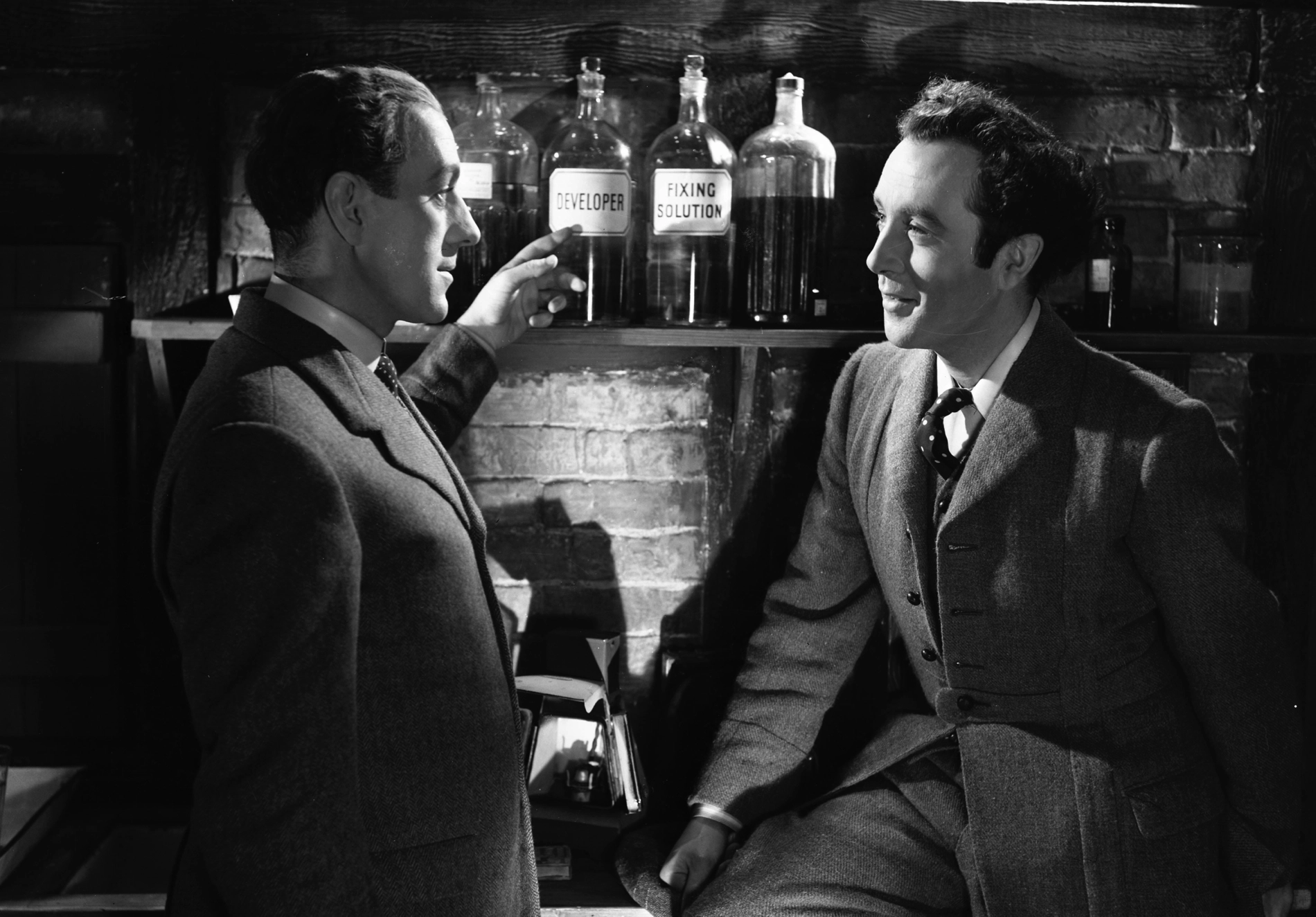
In the company of these giants, Joan Greenwood holds her own excellently. While she did not have a significant career in cinema, she has her five minutes in the role of Sibella. Spoiled, arrogant, sweet when she wants something – childishly so, with a slightly decadent tone to her voice – she excels at hiding the face of a calculating materialist behind the mask of a fragile, defenseless woman. Her total lack of scruples in the pursuit of a comfortable life makes Sibella and Louis ideal partners, alike in their strategic and practical sensibilities. If Sibella knew all the details of Louis’s rise to power and honors, she would probably shrug and congratulate him on his resourcefulness. After all, if you’re not someone, you automatically become no one, unless you convince everyone that they were mistaken. The problem lies in what defines being someone. In Louis and Sibella’s world, it would be a crown, not a tender heart.
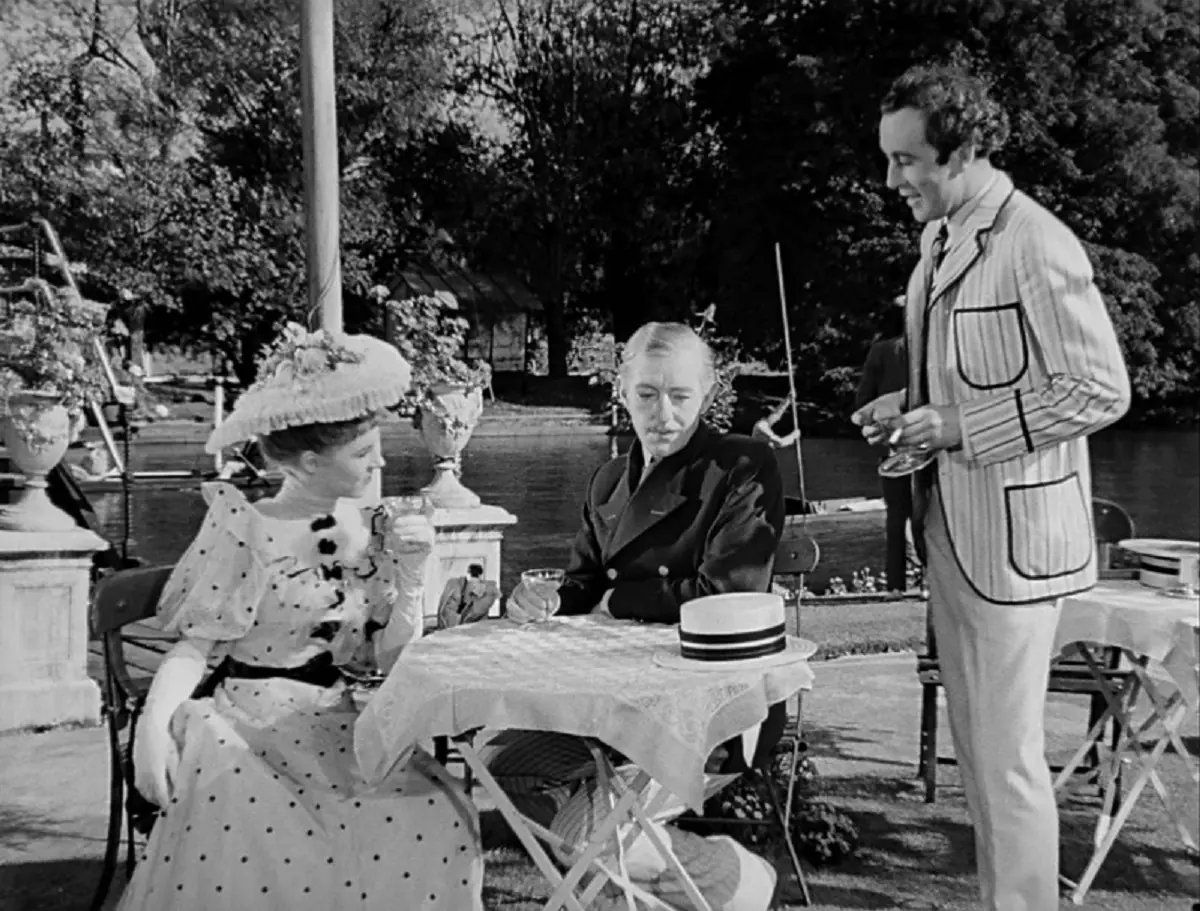
As a trivia: the version of the film for the prudish American market was somewhat censored. It is six minutes shorter than the original, and in the finale, Louis’s diaries are found before he can reach them. Sensitive issues like adultery and unflattering comments about the intelligence of Reverend D’Ascoyne were toned down, and in the children’s rhyme Eeny, meeny, miny, moe, the n-word was replaced with the safer term “sailor.”


